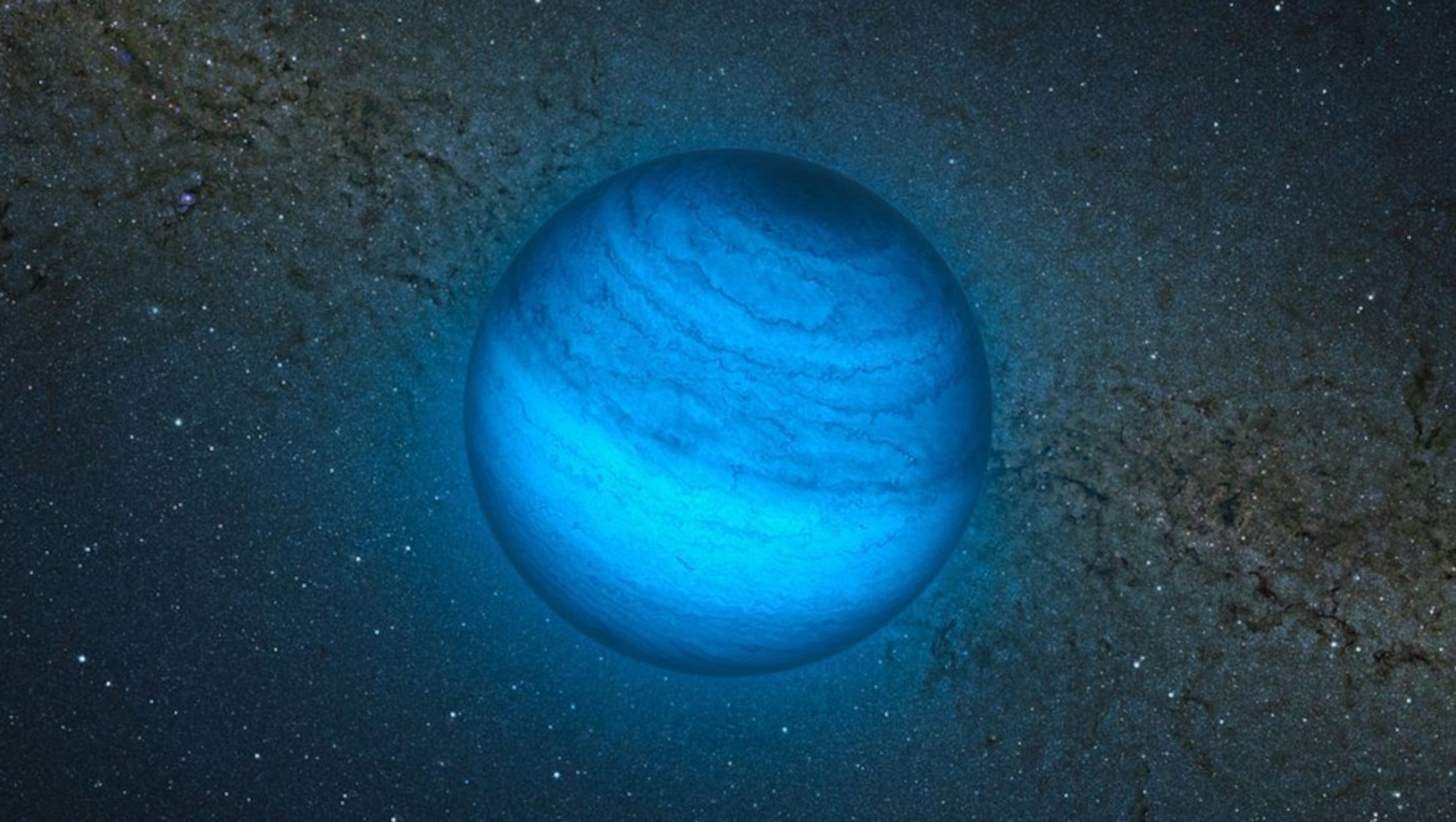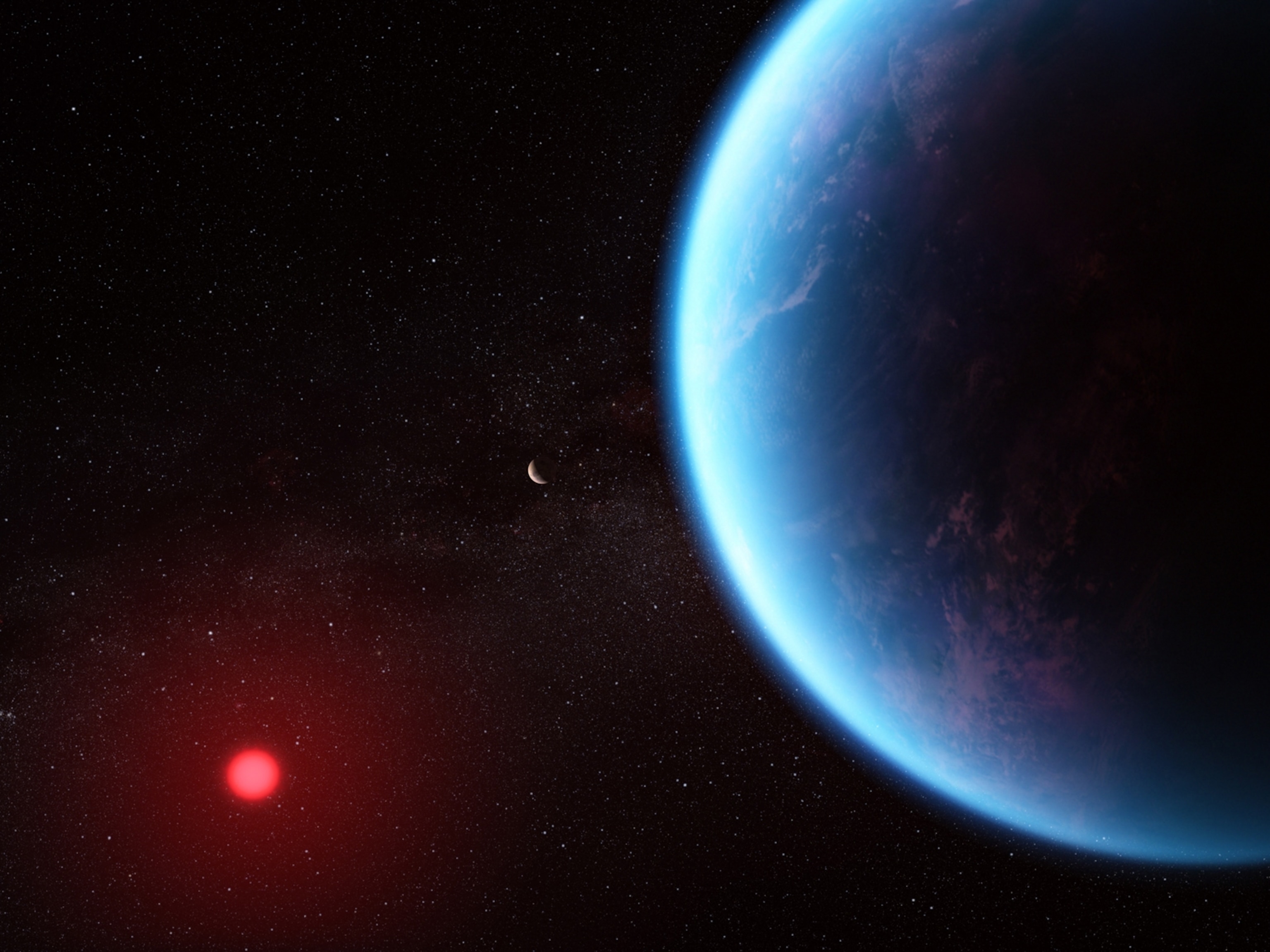
"Orphan Planet" Spotted, Orbits No Star
The potential new world is older, colder, and closer than other "rogue" planets.
Scientists believe such objects—also called homeless, free-floating, or rogue planets—can form in one of two ways. Either they're ejected from star systems, or they form independently.
About a dozen such untethered orbs were identified more than a decade ago in the Orion Nebula. Since then the pool of candidates has grown to several dozen. (See "'Nomad' Planets More Common Than Thought, May Orbit Black Holes.")
The latest discovery is the first to be found outside a star-forming region, said Étienne Artigau, an astronomer at the Université de Montréal and a co-author of the study, published Wednesday by the journal Astronomy & Astrophysics.
Compared with other potential homeless planets, the new candidate is also older, colder, and much closer to Earth—approximately 130 light-years away, he said.
Called CFBDSIR2149, the suspected orphan planet appears to reside in a group of young stars, though it isn't gravitationally linked to any of them. This affiliation with the so-called AB Doradus Moving Group helped scientists estimate the planet's age: 50 to 120 million years old.
(Related: "Earth-Size 'Lone Wolf' Planets May Host Life.")
In Search of Brown Dwarfs
The object's infrared signature was detected when the team—led by Philippe Delorme of France's Laboratoire d'Astrophysique de l'Observatoire de Grenoble—was searching for brown dwarfs several years ago. Brown dwarfs, while too massive to be considered planets, are sometimes dubbed "failed stars," because they lack the bulk to initiate nuclear reactions in their core. (Read about a raging storm detected on a brown dwarf.)
The unusual infrared readings suggested that this particular body had a low mass, more like a gas giant planet than a brown dwarf. The team also looked to see if the object was gravitationally bound to anything else, Artigau said.
"There's a small range where a parent star could be," he noted, adding that in astronomical terms, "small" can mean more than a hundred times the distance of Pluto from the sun. "We checked for a nearby star, which would be pretty bright, and found nothing."
The absence of bright light from a nearby star also means less glare, and therefore better conditions for studying the new world more closely. And more study is exactly what's needed to confirm that it's an orphan planet.
More: Read "Searching for New Earths" from National Geographic magazine >>





